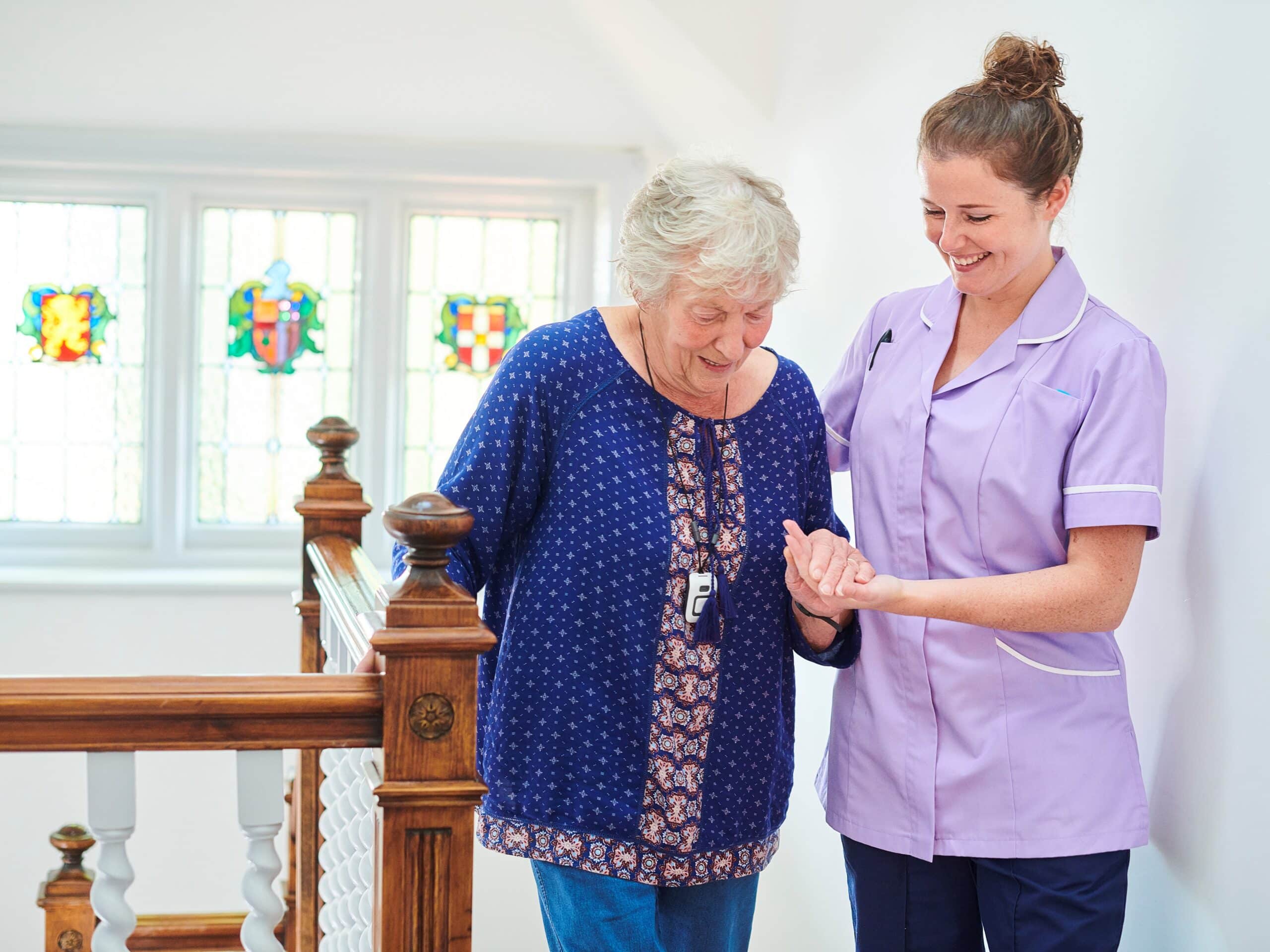Hospital Discharge Care Plans

What is a discharge from hospital care plan?
A plan for your hospital discharge should begin as early as possible, and in some cases, it’ll be in place before you’re even admitted! This is because your stay may not be planned as a long one, yet the provision you’ll need once you are discharged could take some time to arrange. By planning in advance for the support you’ll need, the services can be in place from the day you leave hospital, meaning a seamless continuity of care once you’re back home, or you move into care.
If you’re looking to remain living at home when you’re discharged from hospital, Helping Hands are the company to trust with your care. We’ll follow your discharge from hospital care plan and build on it with our own expertise, to ensure that your care and support proceeds seamlessly once you’re back in the home you love.

Why is it important to have an after-hospital care plan?
Having an after-hospital care plan is essential so that you receive a continuity of care once you’re discharged. Details will vary depending on whether you’re returning home or moving into care, but Helping Hands will always advocate that life is better at home, in comforting and familiar surroundings. It’s vital that there’s a plan in place when you’re coming home, so that your carer(s) know your wishes and preferences. Your hospital discharge care plan should contain details such as:
Do I need a hospital discharge care plan?
The reason you need a care plan for discharge from hospital is so that your treatments can be evaluated, and your progress mapped. It’s also important to have a plan in place that ensures you get essential support in the community, for instance having dressings changed or equipment installed in your home. If your healthcare needs are uncomplicated, you may be required to go to a community setting such as a clinic, outpatients’ department, or GP surgery to receive any ongoing treatments, to which your Helping Hands carer would be happy to accompany you. Alternatively, your community practitioner may come to your house and give treatment there. The community team will also be able to arrange any equipment you may need installed in your home to make it easier to remain independent, such as stair rails, a commode, or handles. Some support may come from the hospital itself post-discharge, such as physiotherapy.
What should an effective care plan include?
Before you’re discharged from hospital, you should have a full plan in place that contains all the information that your carers will need. This includes whether your care needs have been assessed already, which will have happened if Helping Hands are going to support you at home, and the name of the assessor. Other information it should contain includes:
Home adaptations
Details of home adaptations and equipment needed (if relevant), who will supply these, and when
Your liaison
Who to liaise with in the community healthcare team, such as GP, social worker, community nurse
Your care assigner
The member of staff in the hospital who has prepared your plan and will follow it through
How can I create my own care plan?
Any care plan that’s produced should always be done with your involvement, and if you wish, your loved ones’. Your care planning process should begin before you’re discharged and can involve your carer, so Helping Hands will also be onboard at an early stage. This is important to ensure you receive continuity of care once you’re out of hospital and that any essential treatments proceed as they did when you were an in-patient. You should ask for a copy of the assessment if it’s not given to you as a matter of course, as you have the right to have one.
How Helping Hands can help
Because Helping Hands have been supporting people after a hospital discharge for so many years, we truly are the post-hospital care experts. We focus on ensuring your care proceeds seamlessly once you return home and making sure that your days progress as you want them to. We’ll be involved in as much or as little of your daily routine as you need us to be, such as your housework, personal care, and accompanying you to appointments. We offer support on both a visiting and live-in care basis, from a few hours a week up to around the clock, so whether you need us for a set period as you transition back to full strength, or on an ongoing basis, we’ll be there.
Fully regulated by the CQC / CIW
All of our care services are fully regulated by the Care Quality Commission and the Care Inspectorate Wales, meaning that you and your loved ones never have to worry that we’ll let you down. We’ve been supporting our customers across England and Wales since 1989, so as we pass 35 years in business you can be sure our customers receive the benefit of our extensive knowledge and experience.